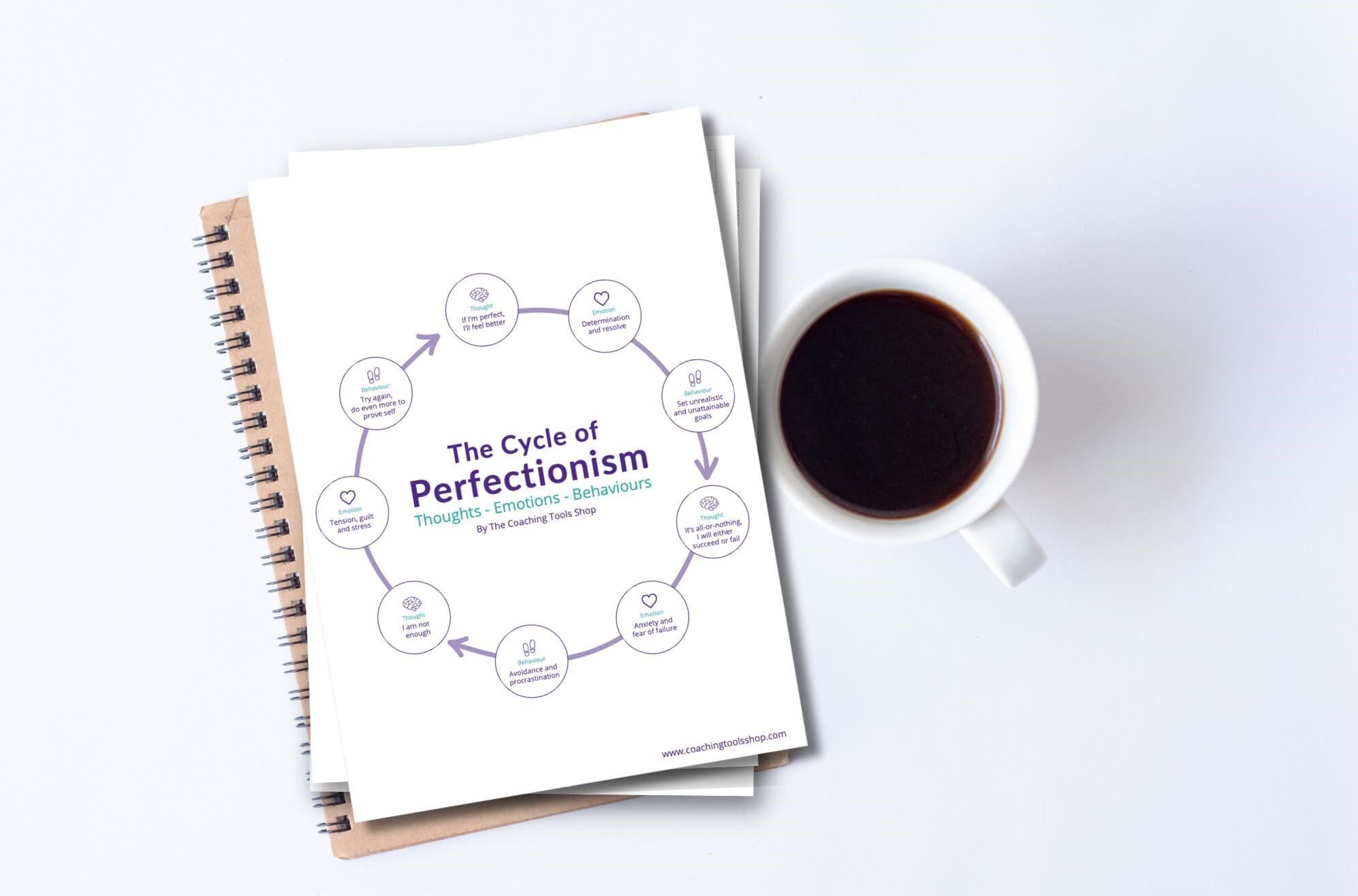Are You Stuck in a Cycle of Perfectionism?
The need to be seen by others as perfect can be a relentless and exhausting mission, and at times, it can be a vicious cycle that you may not even realise you are in. By understanding the thoughts, emotions and associated behaviours that characterise perfection, you can start to unpack the way you show up to help determine if you are stuck in a cycle of perfectionism. And, if the answer’s ‘yes’, then understanding the cycle can also help you disrupt your own patterns that are playing out.
This article contains:
What is the Cycle of Perfectionism?
The Cycle of Perfectionism is a recurring pattern of thoughts, emotions and associated behaviours that individuals with perfectionistic tendencies may experience. Here’s how it might play out:
Thought: If I’m perfect, then I’ll feel better
Emotion: Determination and drive to be perfect that distorts perspective
Behaviour: Set unrealistic and unattainable goals
Perfectionism is defined as having high and precise expectations and standards, which leads to setting unrealistic and unattainable goals. These goals are often externally driven by a ‘need to be seen as’ rather than a healthy striving for excellence from within. Once these high and unrealistic goals are set, the following part of the sequence tends to play out:
Thought: It’s all or nothing, I either succeed or I fail
Emotion: Anxiety and fear of failure
Behaviour: Avoidance and procrastination
Perfection and procrastination are often strongly connected. Perfectionists set unrealistic standards for themselves, which can quickly become overwhelming. The enormity of tasks needing to be completed to such a high standard can quickly lead to procrastination - as the standard is simply unattainable, which is where procrastination can set in. The avoidance of criticism and not wanting to get things wrong can also lead to procrastination. This can show up as excessive time analysing and planning tasks, trying to ensure everything is perfect before taking action. Again, this overthinking can result in delayed or postponed action.
Thought: I am not enough
Emotion: Tension, guilt and stress
Behaviour: Try again, do even more to prove myself
And so the cycle repeats.
How to Break the Perfectionism Cycle?
Disrupting the cycle of perfectionism often involves recognising the patterns that are playing out, challenging unrealistic standards and goals, and then practising self-compassion to develop a healthier view of success and failure. Other ideas for helping break the Perfectionism Cycle include:
Visualise the outcome: Focus on the end result and its significance rather than fixating on the smaller details. Keep the bigger picture front of mind and the importance of your ‘why'.
Start small: Begin with tasks that have lower stakes and gradually work your way up to more challenging tasks. This approach helps you build confidence and reduces the fear of failure, as you have a chance to celebrate the small wins and achievements along the way.
Set time limits: Allocate specific time frames for tasks. This prevents overthinking and allows you to focus on completion rather than perfection.
Act, despite discomfort: Embrace the discomfort of imperfection and take action anyway. The more you practice, the easier it becomes to let go of perfectionist tendencies. Capture these moments and notice how it feels to play, explore and get things wrong or messy.
Accept imperfection: Understand that perfection is often unattainable and that mistakes are part of the learning process. Commit to purposeful imperfection to help build your muscles for releasing perfection.
Challenge all-or-nothing thinking: Avoid extreme thinking patterns that label outcomes as either perfect or failure. Embrace shades of grey and incremental progress - this is often where the magic exists.
Embrace self-compassion: Treat yourself with kindness and understanding. Replace self-criticism with self-compassion, particularly when things don’t go as planned. Use the word ‘yet’ to help soften how it feels not to achieve something - “I haven’t got to that yet, and that’s ok”.
FREE Cycle of Perfectionism Download
If you’ve found this summary helpful, check out our Coaching Through Perfectionism, Question Sets and Resources – designed to help you navigate this important topic.
This product pack includes an Emotion Guide, Coaching Questions, brandable Self-Coaching Exercises, high-res images of the Cycle of Perfectionism, Affirmations, and a Coaching Checklist that outlines strategies for overcoming perfectionism.
Here’s to getting messy and embracing imperfection!




